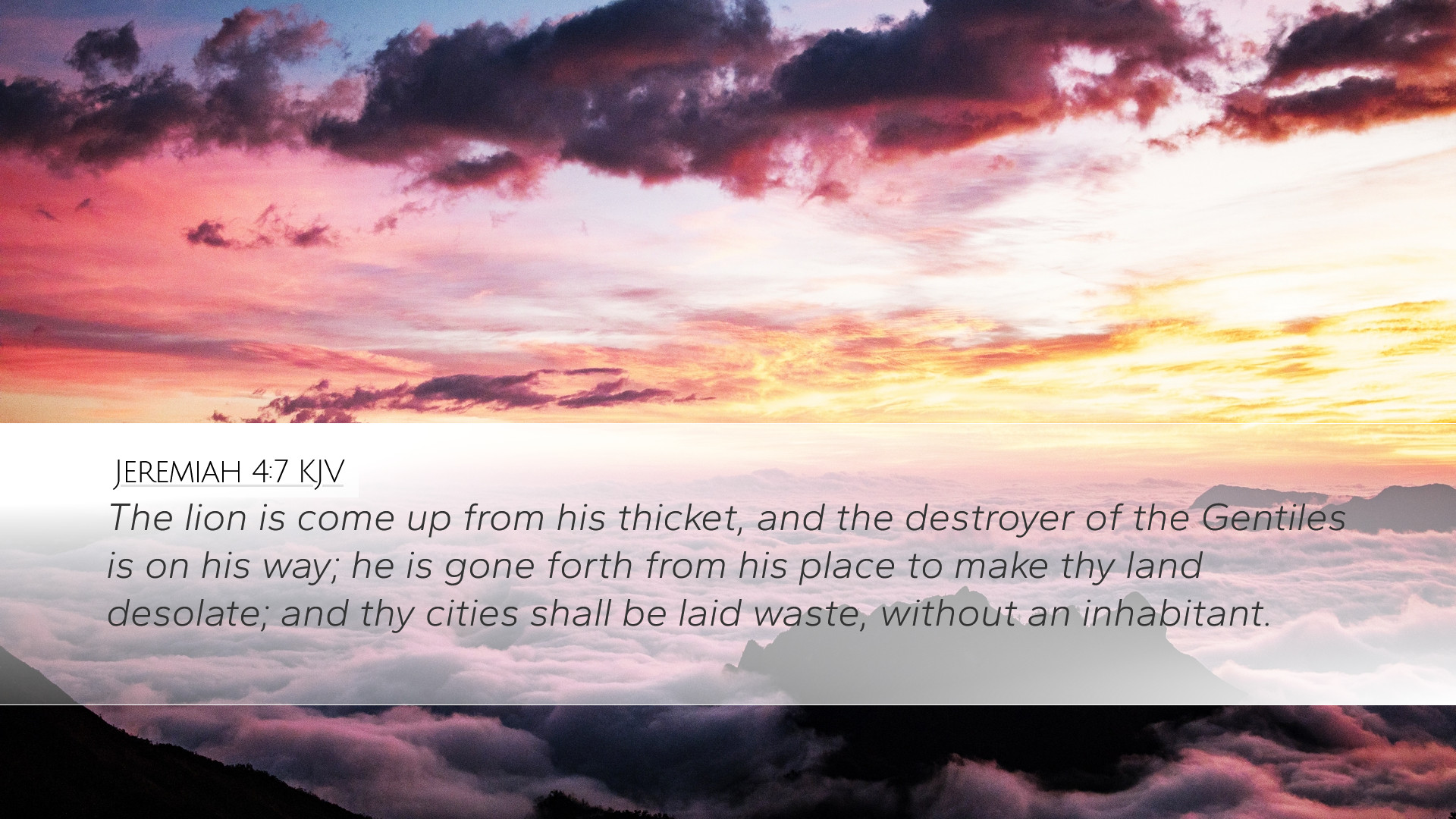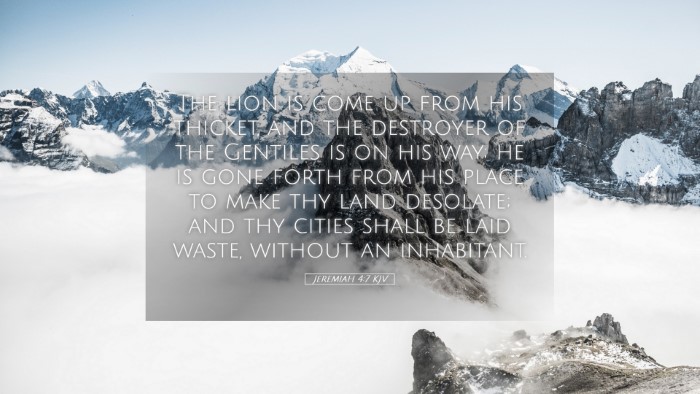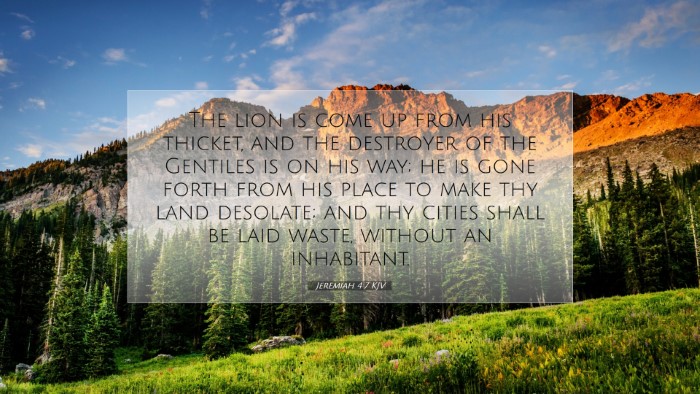Commentary on Jeremiah 4:7
Jeremiah 4:7 states:
"The lion has come up from his thicket, and the destroyer of nations is on his way; he has gone forth from his place to make your land desolate; your cities will be laid waste, without inhabitant."
Exegesis and Theological Insights
This verse is a pivotal expression of impending judgment upon Judah and serves as a dire warning of the devastation that sin brings upon a nation. The prophetic language employed by Jeremiah symbolizes both the ferocity of impending destruction and the sovereignty of God in using such means to execute His righteous judgment.
1. The Lion from His Thicket
Matthew Henry emphasizes the metaphor of the lion, which represents the fierce and unstoppable nature of God's judgment.
-
The Lion as a Symbol of Power:
The lion is often associated with strength and authority, and in this context, it signifies the might of God's instruments of judgment. God unleashes His power through Babylon, represented as a lion that relies on the element of surprise and ferocity.
-
The Thicket as a Symbol of Preparation:
The thicket might signify a time of concealment or preparation. Just as a lion lurks in dense vegetation before springing forth, so God’s judgment is often prepared in secret, coming upon nations when they least expect it.
2. The Destroyer of Nations
Albert Barnes reflects on the title “destroyer of nations,” which signifies the inevitable devastation brought upon those who reject God’s covenant.
-
An Instrument of Divine Judgment:
Barnes notes that the 'destroyer' does not operate outside of God’s ordained purposes; rather, he serves as an instrument through which divine retribution is actualized.
-
The Universality of God’s Judgment:
This phrase illustrates the comprehensive nature of judgment. It warns that no nation, regardless of its stature, is immune to God's wrath if it turns away from righteousness.
3. The Land Made Desolate
Adam Clarke provides insights on the desolation of the land as a direct consequence of the people’s unfaithfulness and sin.
-
The Consequence of Sin:
Clarke suggests that the desolation reflects God’s holiness and justice; the land, emblematic of God’s blessings, becomes barren when the people forsake His commands.
-
A Reflection of Spiritual Desolation:
This desolation speaks not only of physical emptiness but signifies a loss of spiritual vitality and the presence of God. When communities turn away from God, they invite calamity.
Application for Today
This verse, while situated in a specific historical context, offers significant theological and practical implications for today's believers.
-
Awareness of God's Judgment:
Pastors and theologians must remind congregations of the reality of God's judgment—He is patient but will not remain silent forever. Just like Judah, contemporary societies face the risk of divine wrath when turning away from biblical foundations.
-
Call to Repentance:
The urgency in Jeremiah’s warning compels a call to repentance. It serves as a challenge for believers to examine their own lives and the spiritual state of the church and society.
-
Hope Amidst Judgment:
Although judgment looms, God's ultimate desire is restoration. Resilient faith in the face of trials can lead to renewal, providing a hopeful perspective in despair.
Conclusion
Jeremiah 4:7 is a sobering reminder of the consequences of turning away from God. Through the imagery of the lion and nations being laid waste, it underscores God’s authority over judgment and the earnest calls for a return to righteousness. As we study this text, may it inspire both a fear of the Lord and an expectation of His mercy, prompting us toward faithful living and calling others to seek His heart.


